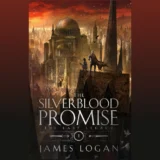 Let’s get some of the background noise out of the way first.
Let’s get some of the background noise out of the way first.
I was initially intrigued by Ann Leckie’s debut novel not because of anything in the book, but because of the things surrounding the book: it’s steady string of ALL of the top SF awards, it’s bystander status during the Hugo Awards nomination and voting process (would it, would it not win despite the oh-so-public drum beating for votes for the Correia slate/the Wheel of Time memorial).
I was propelled into motion (buying and reading) by the online chatter concerning Ms. Leckie’s juggling tricks: using a single gendered pronoun for all of her characters (despite their actual gender) and the tour-de-force of presenting a main character that enjoyed multiple viewpoints, being as she is a former Ancillary – a human shaped tool belonging to an artificial intelligence housed in a troop ship.
When Ann won the Hugo Award for best novel, I was tickled pink. A woman, presenting all of her characters through a lens distorting pronoun choice (a bit more on that in a moment), wrote a science fiction novel (and Ancillary Justice is indubitably science fiction) is the first author ever in the history of the genre to win every single major award.
For a person burdened with the gender that “can’t write science fiction”, I welcomed this meme-smashing historical fact. (I have suggested to Ann and her agent that they immediately have a T-shirt designed that says “Women Can’t Write Sci Fi?”….)
Did Ancillary Justice deserve to win the Hugo, the Nebula, the Arthur C. Clarke, the Locus, the BSFA and the Golden Tentacle? On the strength of the tasks Ann Leckie chose to tackle (a unique presentation of gender, a unique character POV), yes. Those accomplishments are, all by themselves, sufficient to have elevated this novel to the pinnacle of “one of the most important works in the SF genre”; it sits there with other seminal, ground-breaking novels and will surely influence the course of the genre for decades to come.
But does that mean that it is one of the greatest science fiction novels of all time, a work that virtually everyone in the field can relate to? A novel that will see countless Corpse Soldier costumes at conventions?
No, probably not, because Ancillary Justice is a hard book (at least it was for me); by way of comparison, I found Delaney’s Dhalgren to be an easier read.
I suppose my problem began with the presentation of this novel under the heading of Space Opera (I’m still trying to get my head around the new definitions of SF’s sub-genres); the cover suggested space battles, the hype (corpse soldier) did nothing but reinforce my first impressions of the kind of read I was in for. Diving in immediately dissuaded me of those apprehensions, and immediately confused me.
Leckie has created an interstellar empire that uses artificial intelligence – and the marrying of biological systems to electronic ones – to its great advantage. The founder of her seemingly all-dominant galactic empire is a God for all intensive purposes – inhabiting multiple bodies and capable of not only being everywhere within her empire simultaneously, but also of living forever (neatly solving one of the bugaboos of maintaining an interstellar empire without directly restoring to feudalism).
Leckie has also chosen to present her narrative in a translated version of the language used by her empire, the Radch. That language does not recognize gendered pronouns. For english reading individuals, Ann chose the female gender as her default. Every character is referred to as ‘she’, or ‘her’.
This alone makes for a bit of dense reading, at least until one gets used to it. That a reader can and will learn to adjust is, I think, one of the greatest contributions that Ancillary Justice has made to our genre.
It’s a bit curious, but after several chapters of wrestling with trying to figure out whether or not the “she” referred to in the text is a guy or a gal (and presuming that you stick with it), you eventually stop worrying and just go with the flow. This “she” appears to be making romantic overtures towards that “she”: is this a lesbian romance? Which “she” is a “he”? Could they both be guys?
It does not matter.
Repeat: it does not matter.
(I’m leaving aside the distinction between gender and sexual orientation here for the sake of something approaching brevity.)
People are people – even if they were formerly a mobile extension of an artificial intelligence in human form. (Do AIs care what gender their ancillaries, former human beings, are? Judging by the text – no. The bodies are interchangeable parts; so long as they take to the AI implants they are fitted with, they’ll get the job done.)
Leckie has destroyed gender distinctions in science fiction. The strength of her presentation is found in cajoling the reader along until such time that they no longer worry the bones of gender, taking them to a place where the can see for themselves that the story flows absent the usual distinctions. Pulling aside the gender veil allows the reader to experience each character without the stereotypical baggage that usually accompanies them (men wear pants, women wear skirts); the trick is that the reader is first forced – forcefully – to confront the fact that gendered pronouns introduce a subtext to every story they’ve ever read, usually without their realizing it.
Gender gets shoved in the reader’s face and then it disappears. You begin to accept every character as a character; you make no unwarranted assumptions about what they can and can’t do, should or shouldn’t be doing.
And all of this, remarkably, through the eyes of a person who is both more and less than an actual person. Breq, the main character, was a former prisoner (of the Radch empire’s conquests), frozen and placed in storage until needed to serve as an ancillary: a human being with implants that allows an AI (housed in an enormous troop carrying ship) to use it as an appendage.
Breq is no mere wet works robot though. Breq has emotions, attachments, likes and dislikes. We learn that the ship-borne AI of which Breq is one very small extension has favorites among the crew and, though the AI is confined by its programming to always be loyal to the Radch and to always obey orders given by the proper authorities, they are capable of expressing their feelings through a kind of passive-aggressiveness that is both creepy and reflective of the empire Leckie has created; if your ship AI doesn’t like you all that much, it will obey your orders (make me soup for lunch), but without the alacrity and care it extends to those it does like; your soup will always be a couple of degrees too hot or too cold (others will get perfect soup); questions will be answered to the letter, rather than personally tailored with extra bits thrown in.
The Radch, ruled by Anaander Mianaai (the multi-bodied, immortal) has been on a mission to bring “culture” and “civilization” to the galaxy; it does so through the ruthless conquest of planets using its corpse soldier ancillaries (nearly impossible to resist as they are both faster, smarter, care less about damage and act collectively while maintaining the ability to act individually) and ships whose engines can slag an entire planet (as happened in fairly recent Radch history as the book opens – only about 1,000 years ago). Indeed, we are informed that Radch essentially translates to “civilized/civilization” and that is what Mianaai offers her objects of conquest – the opportunity to become civilized (by being forcibly brought into the empire) through annexation.
Since the Raadch need not justify their actions (of course everyone wants to be civilized – whether they realize it or not), annexation seems rather brutal; citizens of the conquered planet are subject to elimination or re-education (reminding me somewhat of Alex’s re-education in A Clockwork Orange); existing power structures are left in place where they serve the Radch, violently persecuted where they don’t; religion (apparently a very strong cultural influence throughout intergalactic space) is honored and incorporated into the Radch’s pantheon (all gods are aspects of Anaander Mianaai). Those who acquiesce to their new rulers quickly are rewarded with powerful connections; their children are quickly brought into the system of patronage and, seemingly within a generation or two, even those worlds that strongly resisted have become fully-fledged members of the empire, their interests coinciding with it.
Leckie has admitted in interviews that the Radch is very romanesque; it is at least insofar as borrowing heavily from the ways in which Rome absorbed conquered provinces. The Radch is of course a bit more effective, having the benefit of various advanced technologies.
And, like Rome, the Radch faces barbarians at the gates, a non-human technological species that it is seemingly incapable of absorbing – but which hints at being able to annihilate the Radch. The Presgr feature prominently, although they never appear on stage.
Ancillary Justice is essentially an intertwined love and revenge story and a “woman who learns better” tale as well. (Spoiler Alert) Breq, as the AI operated ship Justice of Toren, is forced by Miannai to kill one of the ship’s favored lieutenants – a person that the ship was falling in love with.
The execution was the result of political intrigues going on at the highest level of the Radch empire – intrigues that present Breq/Justice of Toren with major heartburn because it frequently receives instructions, or comes across information, that suggests that the empire (embodied by Anaander) has become somewhat schizophrenic. Like a child caught in the middle of a nasty divorce receiving conflicting instructions from its parent’s, Breq eventually lashes out in ways that are inappropriate. This leads to the destruction of the ship Justice of Toren, leaving one lone ancillary alive and functioning – Breq.
The remainder of the story concerns Breq’s coming to terms with her being reduced to a single body, figuring out why she (as the ship) was destroyed and seeking revenge for having been forced to kill one she loved.
This seems like a relatively straight-forward arc. My difficulties in getting a handle on Ancillary Justice were largely due to a co-mingling of the pronoun affectation and the multiple-body point of view; that, coupled with unfamiliar names (without a gender handle, it was difficult to ‘put a face to’ – at least until much later in my reading) and having to absorb a great deal of information regarding the culture, technology, religion and politics of the Radch, which itself is similar to many other galactic empires, but differently oddball just enough to lull you into a false sense of familiarity. (Much of the book was like that; passages, scenes, characters, motivations that started off being familiar that would then take an unexpected turn into uncharted territory.)
(As an aside: it is quite clear from the richness, detail and depth of the Radch that is often only hinted at that Leckie has thought long, hard and deeply about the universe she has created.)
Breq’s quest for self-understanding and retribution against those who put her in the position to need to discover that self-understanding, find resolution towards the end of Ancillary Justice in a manner that might best be summed up by the chorus of a well-known Rolling Stones’ song: “You can’t always get what you want, but sometimes, you get what you need.” The novel ends with enough resolution to the mysteries presented to somewhat satisfy and to leave a definite desire to follow the series into Ancillary Sword, the soon to be released 2nd part.
Our review of the sequel, Ancillary Sword, will be posted tomorrow.










